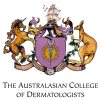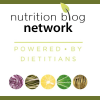Definition – what is a vegetarian diet?
- A semi vegetarian person who eats poultry and /or fish, dairy foods and eggs but no red meat.
- A lacto vegetarian person consumes dairy products but no meat, poultry or fish.
- A pescetarian person includes fish and other seafood but no meat or poultry.
Advantages of a vegetarian diet
- Lower risk of chronic disease: High intakes of meat particularly red meat are associated with high cholesterol leading to heart disease and risk of cancers such as colorectal cancer. On the other hand the fat intake from vegetarian diets can come entirely from good fats such as olive oil, nuts and seeds, which are protective against heart disease. The fibre from fruits, vegetables, legumes and wholegrain cereals also help in lowering cholesterol as well as maintaining blood sugar levels. Keep in mind that excessive intake of alcohol and smoking can increase incidence of disease.
- Cancer risk reduction: High intakes of meat particularly red meat are associated with incidence of cancers such as colorectal cancer.
- Weight loss: The weight loss benefits of a vegetarian diet may be attributed to greater consumption of lower calorie foods such as vegetables and legumes in comparison to a meat based diet.
Adequacy of nutrients on the vegetarian diet
- Protein: Soy, legumes, nuts and seeds are good sources of protein for people on a vegetarian diet. Soy in particular is a complete protein which means that it provides all the essential amino acids required by the body. Protein is essential for growth, tissue repair and synthesis of enzymes and hormones.
- Iron: Wholegrain and fortified cereals, dark leafy green vegetables, legumes provide substantial amount of iron. Vitamin C helps with the absorption of iron. Coffee and tea should not be had along with iron containing foods as it inhibits the absorption of iron. Iron is an important component of haemoglobin that carries oxygen from lungs throughout the body. Deficiency of iron causes a decreased capacity to work and impaired intellectual performance.
- Calcium: Low fat dairy products, leafy greens such as kale and collard greens and calcium fortified breakfast cereals can provide adequate calcium to a person on a vegetarian diet. In order to increase absorption of calcium, adequate vitamin D is required which is mainly obtained through exposure to sunlight. A supplement may be required to meet requirements for Vitamin D. Excessive salt and caffeine intake decrease absorption. Phytic acid found in raw vegetables decreases the absorption of calcium. Hence vegetables should be cooked appropriately. Calcium is required for optimising of bone health. Lack of calcium can lead to osteoporosis.
- Vitamin B12: Eggs and dairy products are good sources. Adequate Vitamin B12 is required for maturation of red blood cells. Inadequate Vitamin B12 can lead to macrocytic anaemia.
- Zinc: Legumes, wholegrain eggs, cheese and zinc fortified breakfast cereals are sources of zinc. Absorption can be increased by soaking legumes, consuming sprouted brans, grains and seeds and consuming foods that contain organic acid such as citric acid in fruits and vegetables at meal times.
- Omega-3: Flax-seed oil and walnuts are good sources. Protective against diseases such as heart disease, rheumatoid arthritis and depression.
Verdict on a vegetarian diet
A balanced vegetarian diet as part of a healthy lifestyle that includes adequate exercise can be protective against a number of diseases such as heart disease, diabetes and cancer. So if the vegetarian diet suits you, you have the green light from me!
This article was written by our Dietitian and Nutritionist Juhi Bhambhaney. If you have questions about diet and nutrition contact your local doctor, who will arrange for you to see a dietitian and nutritionist. We‘ll provide you with a simple and effective routine targeted to your concerns. Contact us today!
The post Vegetarian Diet – Good or Bad? appeared first on ENT Wellbeing Sydney.










